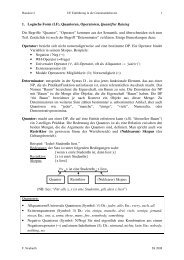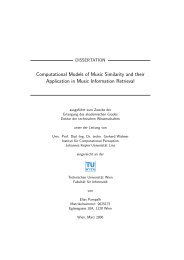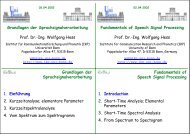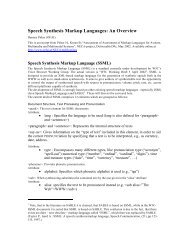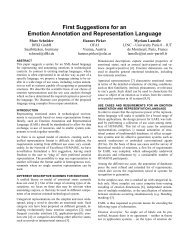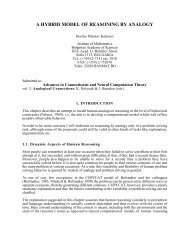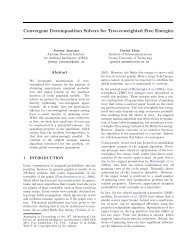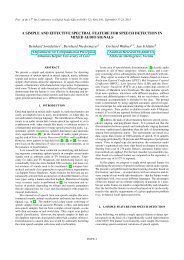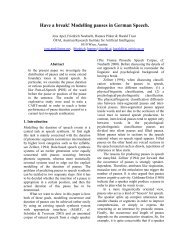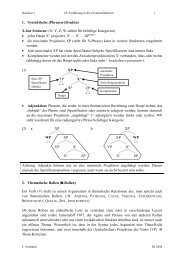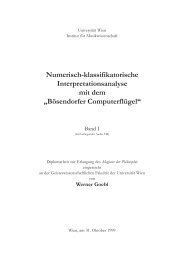Global Musical Tempo Transformations using Case Based ... - OFAI
Global Musical Tempo Transformations using Case Based ... - OFAI
Global Musical Tempo Transformations using Case Based ... - OFAI
Create successful ePaper yourself
Turn your PDF publications into a flip-book with our unique Google optimized e-Paper software.
Chapter 1<br />
Introduction<br />
In this research work, in partial fulfillment of the doctoral programme ‘Informàtica<br />
i communicació digital’ of the Pompeu Fabra University, Barcelona,<br />
we present our current work and the goal of our thesis research. We will report<br />
our recent activities of applying a problem solving technique called <strong>Case</strong><br />
<strong>Based</strong> Reasoning (CBR) in the area of expressive music processing. To provide<br />
a broader perspective for this work, we will give an overview of past<br />
and current research in the field of music performance research and CBR.<br />
Finally, based on the current state of our research work, we will propose<br />
some concrete lines of work to fulfill the research goals.<br />
In the rest of this chapter, we will introduce the field of expressive music<br />
research, and musical tempo transformations as a special kind of this<br />
research. In chapter 2, we will have a more detailed look at some topics<br />
in music performance research. We will pay attention to more fundamental<br />
and cognitive/psychological research as well as review various approaches to<br />
expressive music generation by computational means. In chapter 3, we will<br />
introduce <strong>Case</strong> <strong>Based</strong> Reasoning (CBR), a problem solving approach that we<br />
believe is suitable for application in the domain of musical expression processing.<br />
The research-goals of this research will be presented in chapter 4. In<br />
chapter 5, we will describe a technique for realizing tempo transformations of<br />
musical phrases, that is, generating a performance for a given score at a certain<br />
tempo, given a performance of that score at a different tempo. Finally,<br />
in chapter 6, we will present conclusions and propose future research.<br />
1.1 Expressiveness in <strong>Musical</strong> Performances<br />
It has been long established that when humans perform music from score,<br />
the result is never a literal, mechanical rendering of the score (the so called<br />
9



